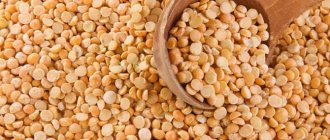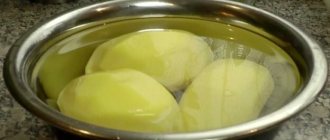Vegetable growing » Eggplant
0
1154
Article rating
Kira Stoletova
Eggplant belongs to the nightshade family. This vegetable is often used in preparing various dishes, but before cooking, you need to remove the bitterness from eggplants. To prevent eggplants from becoming bitter, several methods are used.
Removing bitterness from eggplants
Useful properties of the vegetable
Experts highlight eggplant as one of the healthy foods that should be included in a balanced diet. The nightshade family contains a large amount of vitamins and microelements. They contain vitamins C, B, PP. And they are also rich:
- magnesium;
- pectin;
- potassium;
- phosphorus;
- iron;
- sodium;
- fiber.
The beneficial properties of the culture include the fact that it helps to cope with smoking addiction. Thanks to vitamin PP or nicotinic acid, it will be easier to endure the absence of cigarettes. Vegetables lower blood cholesterol levels and stimulate digestion, thanks to the pectin in the plant.
Thanks to potassium, which regulates blood pressure, vegetables are recommended for use in cases of liver disease and atherosclerosis. And chlorogenic acid is one of the most powerful antioxidants. Therefore, when adding eggplant to your diet, a person strengthens his immunity.
Nutritionists also recommend using it due to its low calorie content. Its high fiber content and minimal carbohydrates make it effective for weight loss. Thanks to the phytonutrient nasunin, the likelihood of cancer or heart disease is reduced.
It's upsetting that they're bitter. Are they bitter?
The main disappointment of experienced housewives and cooks is that eggplants are bitter. Who enjoys eating bitter things? Are they bitter? It’s interesting that people of the older generation claim this. And the young people are surprised: there are no bitter eggplants!
It turns out that everything is very simple. Indeed, the plant once produced bitter fruits. But breeders have gone to great lengths, and new varieties do without this drawback. However, here everything is like with cucumbers: there are bitter ones, there are non-bitter ones. Depends on growing conditions. Fruits that suffered during the growth period from cold and lack of moisture become bitter. And overripe. So the “little blue ones”, which grew in summer cottages in warmth and comfort, were watered on time and picked, do not give bitterness.
And supermarkets sell greenhouse fruits of non-bitter varieties. Although, of course, they are inferior in taste to those grown in the ground. But you need to choose small fruits, with blunt noses and immature ones, with small light seeds.
Harmful properties
Eggplants cause harm only in 2 cases:
- if you eat old, stale fruits;
- for urolithiasis or gallstone diseases.
The plant contains esters and salts of oxalic acid, which are contraindicated for people with metabolic disorders.
Solanine is an alkaloid that in large quantities is harmful to any person because it becomes poisonous. It accumulates only in old eggplants. The substance causes poisoning, which manifests itself in the form of nausea, vomiting, fatigue and fever. To neutralize solanine, use milk or egg white.
Soaking in salt water
Salt water will remove the bitterness from the vegetable.
Soaking in salt water is the most popular option. The soaking time depends on what pieces the vegetable is cut into. If these are thin circles or slices, half an hour will be enough. If it is important to soak the eggplants as a whole, it will take 2 hours. The main thing is to take time so that all the bitterness comes out.
Causes of bitterness in eggplants
Bitterness may occur due to temperature changes
Many gardeners wonder why eggplants are bitter. Causes of bitterness:
- Long ripening. The longer the period, the more bitter the vegetable will be. This is due to the toxic substance solanine, which is contained in the plant. Therefore, it is worth monitoring the ripening dates. The fruits are harvested 35-40 days after setting, when they are still technically ripe.
- Wrong variety. When purchasing seeds for growing, consider the characteristics of the species.
- Sudden temperature changes during cultivation. It will fluctuate between 18 and 25°C.
- Lack of moisture in the soil. An appropriate watering regime will ensure piquancy and pleasant taste. In hot weather, water the plant every 2 days, before lunch. Use warm water about 24°C.
If, despite following the growing rules, a vegetable removed from the garden still tastes bitter, do not be discouraged - there are many ways to rid eggplants of bitterness.
Related to tomatoes and potatoes
Did you know, for example, that eggplant is a berry? This is a nightshade, a close relative of tomatoes. And potatoes, of course. Like potatoes, it is susceptible to attacks by the Colorado potato beetle and late blight, but is not at all as unpretentious in cultivation. Loves warmth, moisture and rich soil. He somehow likes the subtropics more than our middle zone. But Russian breeders and hardworking summer residents managed to adapt to the demands of the sissy, and the “little blue ones” are successfully winning the hearts and stomachs of our compatriots.
Eggplant fruits, by the way, are not necessarily blue. When ripe, they generally range from gray-green to brown-yellow. But no one eats them when ripe - they are coarse and inedible, and they also accumulate solanine. They are eaten unripe when they are lilac and violet. However, very light varieties have also been developed (“golden egg”, “white egg”). There are large and very small, pear-shaped, spherical and cylindrical shapes.
Eggplants are fried, boiled, stewed, baked, stuffed, marinated, grilled, crushed into caviar, and eaten raw. “Longevity vegetables,” as they are called in the East, are really recommended for the elderly, especially heart patients - they contain a lot of potassium. In addition, they break down fats, therefore they are respected by those seeking to lose weight and those who are predisposed to atherosclerosis, metabolic disorders, diseases of the gastrointestinal tract, kidneys and liver.
Ways to get rid of bitterness
This vegetable is added to a variety of dishes. It is also often prepared for the winter. Therefore, it is important that when preparing dishes, cooks or housewives know how to rid eggplants of bitterness.
Many ulinars know how to remove bitterness from eggplants. This is done by salting, freezing, peeling or soaking in solutions. They select the method individually, focusing on what dish will be prepared. If you use peeling, it requires complete removal of the skin, and some recipes require this. If you come across a bitter vegetable, cooks often use salt to neutralize it. It is used in 2 types: as a solution or dry method.
Soaking in saline solution
One of the most popular methods. It is suitable if you need to quickly soak whole fruits. To do this you will need a bowl or large container and some pressure. This will allow the vegetables not to float to the surface and completely soak them in the solution.
To carry out soaking, follow the sequence of actions:
- Cold water is poured into the container. For 1 l. add 40 g of table salt.
- The fruits are placed in a bowl. To reduce the procedure time, the vegetable is cut into pieces.
- To ensure that the eggplants are completely immersed in the solution, a pressure is built. To do this, the fruits are covered with a flat container, and a heavy object is placed on it - a 5 liter bottle or a jar.
- Soak the culture in salted water for 30-45 minutes. The period varies depending on the number of fruits. Large whole fruits require about 2 hours to soak.
- Processed eggplants are washed under running water. Place on a plate so that excess liquid simply drains away.
Sprinkling with salt
Chop the eggplants into pieces before soaking.
A simple method using coarse salt. To do this, choose any type of salt:
- iodized;
- sea;
- cookery;
- crushed.
With this processing, coarse salt is preferable to fine salt, because the structure of the pulp is porous. To carry out the procedure correctly, the fruits are washed and chopped into pieces: slices, circles, cubes. Before ridding eggplants of bitterness using this method, the fruits should be dried.
Take a deep dish, place vegetables and sprinkle with salt. Then mix and lay them out in layers. Keep them for 20-30 minutes. When liquid appears on the surface of the fruit, the procedure is over - the vegetables are washed and blotted with napkins or a towel.
other methods
Alternative methods to help remove the bitterness of eggplants:
- To freeze. Cut or whole fruits are placed in the freezer for 4-5 hours. The frozen vegetable is taken out and the excess liquid is squeezed out.
- Use milk. Salted chopped eggplants are covered with a napkin and sprinkled with milk. Press down the towel a little and remove it after 10 minutes. Afterwards the pieces are wiped dry.
- Fill the culture with hot, unsalted water at about 80-90°C. The liquid is drained and the blue ones are dried.
- Place chopped vegetables in boiling water and keep on fire for about 2 minutes. Remove from water and remove excess liquid.
- Use a knife or vegetable peeler to remove the skin of the vegetable. This will rid it of solanine. When it comes to the question of what to do to prevent eggplants from becoming bitter, this is the simplest solution.
Video
In order for eggplants to be tasty in the chosen dish, removing the bitterness from them is an important procedure before starting cooking. To do this, you can pickle the cut fruits for a while, soak them in water, freeze them for several hours, or simply peel them. For those who are doing this for the first time, it is important to know how to properly remove bitterness and how long it will take. In the video below you will learn how long it is necessary to soak the little blue ones so that they stop being bitter, and what other method exists to quickly eliminate bitterness. Watch interesting videos from experienced chefs:
How long to soak eggplants to remove the bitterness?
How to choose the right vegetable
The taste of the entire dish depends on the correct choice of crop variety. The bitterness in eggplant is affected by the peel and seeds. When purchasing, make sure that the tail is elastic and the stem is not rotten. Good products have a slightly creaky surface and a dark purple tint.
Classic varieties or hybrids that do not contain bitterness include:
- White Night;
- Diamond;
- Mushroom taste;
- Chasha early;
- Lolita;
- Green;
- Pelican;
- Ping pong;
- Rosita.
Side effects
In the literature and articles, one can increasingly find opinions about the dangers of protein supplements. It is believed that when the protein mixture is digested, ammonia is released, which is converted by the liver into a harmless compound. The latter, in turn, puts a strain on the kidneys, which are forced to struggle with processing excess protein (if you have exceeded the dosage). It turns out that such important organs have to endure a double load? - Not at all.
Experiments have confirmed that taking 3 grams of protein per kilogram of weight does not pose any danger to the kidneys. In addition, with active training, the chance of gaining weight (specifically in terms of fat) is also minimal.
You will certainly gain weight, but it will be muscle.
Poster-Food
"Afisha-Eda" is a symbiosis of a social network and a collection of recipes
Here you will not only find the perfect dish according to your taste, but also share your find with friends, rate it, and leave a comment. By creating your profile, you can tell the world about your culinary achievements. The bulk of the dishes belong to ordinary users, and not to specialized magazines for experienced chefs. “Afisha-Food” allows every amateur cook to show their talents.
On the site:
Database of culinary recipes. Online encyclopedia of ingredients, tools, cooking techniques. Interactive cooking school. Issues of the online magazine “Food”. Possibility to add your own recipe.
Caponata
fanfon/Depositphotos.com
This is a Sicilian stew made from eggplant and other vegetables. It is eaten both hot and cold, served as an independent dish, as well as a side dish and snack.
Ingredients:
- 800 g eggplants;
- 150 g olives;
- 90 g capers;
- 140 g onions;
- 50 g sugar;
- 400 ml tomato paste;
- 80 ml white wine vinegar;
- olive oil for frying;
- basil, salt and pepper to taste.
Preparation
Peel the eggplants, cut them into cubes and fry them in olive oil. To prevent vegetables from being too fatty, you can lightly pour boiling water over them before frying.
In a separate bowl, caramelize the onion with sugar (do not use butter) until golden. Then add capers (remember that they can be replaced with pickles), olives, wine vinegar and a little olive oil. Simmer it all for about five minutes, then add the fried eggplants and tomato paste. Cook for another 7–10 minutes. A couple of minutes before cooking, add finely chopped fresh basil, salt and pepper to taste. Be careful with salt. You can generally do without it, since capers usually add the necessary saltiness to the dish.
Using boiling water
The procedure is longer. Heat water to boiling. Salting is prohibited. Pour boiling water over the cut pieces into containers for a few minutes. Then drain the water. Dry the eggplant.
This technique can be used on whole and chopped vegetables:
- Place the pieces into a pan of boiling water.
- You need to hold it for 2 minutes.
- Then take it out, let it cool and dry.
If you have a suitable colander for the pan, this will make the procedure easier for several batches.
When processed at high temperatures, the eggplant pieces will lose their shape. This method is not suitable for decorative decoration of a dish.
To protect yourself from the upcoming problem at the purchasing stage, you need to be able to choose correctly in the store. It is better to take young fruits. There is no bitterness in them, and the skin is thin. In appearance they are:
- without rotten spots;
- glossy;
- oblong shape.
When cut in half, there are no dark seeds inside.
Young vegetables do not need to be treated for bitterness. Old eggplants give a bitter taste. They have thick skins and are more difficult to process in the kitchen. The most delicious eggplant has the thinnest skin. The taste depends on the color saturation. The darker the shade, the more pleasant and juicy the prepared dish will be. It is better not to purchase light colors.
Eggplant is picked from the garden immediately while it is young. There is no need to wait for it to wrinkle and become overripe. Some varieties have a bitter taste as a characteristic of the variety, which is difficult to get rid of. You should be careful when choosing a product.
https://www.syl.ru/article/343888/kak-prosto-i-byistro-ubrat-gorech-iz-baklajanov
What to do if eggplants are bitter, and how to avoid this when growing
It happens that you decided to cook eggplant kebab, caviar, salad or other dish, but it turned out to be bitter and unpleasant in taste.
Then gardeners have a question: why is eggplant bitter, the reasons for the bitterness, because the fruits are grown on their own plot? We will learn what factors and violations of agricultural technology can spoil the taste of this crop, how to protect the fruits from bitterness.
Sprinkling with salt
Cut clean eggplants into small circles, about 0.5-1 cm. Cut into longitudinal or transverse pieces. The resulting slices can be of any shape. Sprinkle each slice with salt and place in a bowl. In 15-20 minutes, droplets form on the surface. The bitterness comes out of the circles along with the liquid. Next, rinse with water and proceed to the main preparation.
Similar variants of this method include rubbing the slices with salt. The same effect will happen if you put the circles in a bowl, sprinkle with salt and stir.
For all tips using salt, use regular table salt. The use of sea water is expressly prohibited. You cannot use small ones, such as “extra”. The grains should be as large as possible. This way they will remove the liquid from the pulp, and the vegetable itself will not be saturated with salt. Otherwise, the dish will be very salty.











